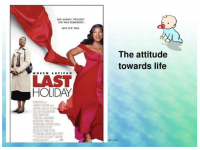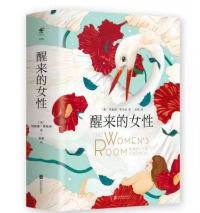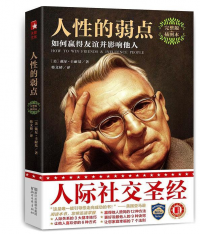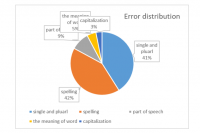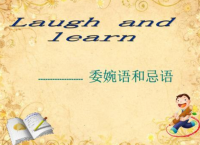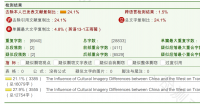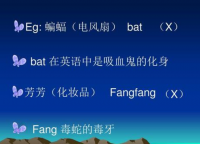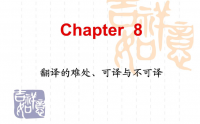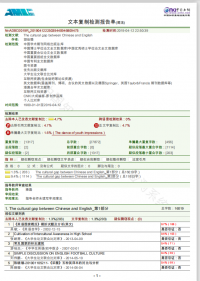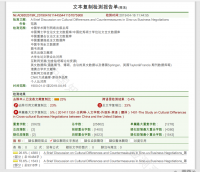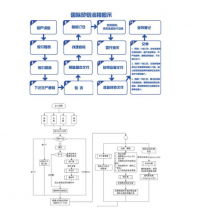从跨文化角度浅析《最后的假期》里中美消费方式的差异
摘 要
中美社会历史背景、价值观念、道德观念、以及家庭教育背景的差异,引起了两国人们消费观念的不同。 论文从文化的角度, 主要论述了中美两国人们在存钱、 旅游、以及追求新潮时尚等方面消费观念的差异。论文重点研究了从跨文化角度浅析《最后的假期》里消费方式的差异,以及文化对消费观念的影响, 使人们进一步认识到不同文化背景蕴含不同的消费观念, 并能正确、 理性地看待本国文化与本国人们的消费观念, 打破对其他国家人们不同消费观念持有的偏见,理解、尊重并借鉴不同文化背景下人们的消费观念。
关键词: 《最后的假期》;中美文化; 文化差异; 消费观念差异
Abstract
The differences in social and historical background, values, moral concepts and family education background between China and the United States cause the differences in consumption concepts between the two countries. From the perspective of Cross culture, this paper mainly discusses the differences of consumption concepts between Chinese and American people in saving money, tourism, and the pursuit of new fashion. This paper focuses on the analysis of the differences in consumption patterns in the last holiday from a cross-cultural perspective, as well as the influence of Cross culture on consumption concepts, so that people can further realize that different cultural backgrounds contain different consumption concepts, and can correctly and rationally treat their own Cross culture and people's consumption concepts, We should break the prejudice against people's different consumption concepts in other countries, and understand, respect and learn from people's consumption concepts in different cultural backgrounds.
Key words: the last holiday; Chinese and American Cross culture; cultural differences; differences in consumption concepts
Contents
Abstract I
摘要 II
1 Introduction 1
1.1 Significance and Aim of the Paper 1
1.2 Organization of the Paper 1
2 Literature Review 2
2.1 The Definition of Consumption Conception 2
2.2 Related Researches Abroad and at Home 2
3 The Comparison of Chinese and American Consumption Conception 3
3.1 Conservatism and Adventurism 3
3.2 Future Consumption and Excessive Consumption 4
3.3 Frugality and Enjoyment 5
3.4 Practicability and Form 5
3.5 Collectivity and Individuality 6
4 The Influences of Chinese and American Cross cultures on Consumption Conception 6
4.1 The Influences of Geography on Consumption Conception 7
4.2 The Influences of Social Development on Consumption Conception 7
4.3 The Influences of Values on Consumption Conception 8
4.4 The Influences of Traditional Family Education on Consumption Conception 9
4.5 The Influences of Entertainments on Consumption Conception 10
5 Some Inspirations for Establishing a Correct Concept of Consumption 10
5.1 Living within Our Means and Moderate Consumption 10
5.2 Avoiding Blind Obedience and Rational Consumption 10
5.3 Protecting the Environment and Green Consumption 11
6 Conclusion 12
References 13
1 Introduction
Shy and speechless, Georgia bird (Quinn Latifa) is a kitchenware salesman in a department store in New Orleans. In addition to her work, she usually sings in a church choir. Although she dreams of falling in love with Sean and getting married, traveling abroad and even meeting her favorite chef, she just dreams of being ordinary. What is not well known is that the chubby Georgia is actually very good at cooking, which is totally super professional.
Ordinary days did not last long. Once, Georgia, who accidentally bumped into a bag on her head, was diagnosed as incurable during the examination. The doctor asserted that she could only live for another three weeks! So, unwilling to spend the few weeks left, Georgia quit her job, took all her savings, and flew directly to the dream European resort town of karowifali, a place with fairy tale snow mountains, countless hot springs and super luxury hotel. Here, Georgia met a senator, a representative, a former boss, and even the chef (played by Gerald padillo), who he worshipped, became friends with himself.
Skiing, casinos, feasts, as if God had put a lot of good luck on Georgia before taking her life. In fact, what will happen next is really expected. We create Cross cultures which also create ourselves. Each nation creates different Cross cultures in their different ways; in turn, different Cross cultures also create various nations. Cross culture is the complex whole that includes knowledge, belief, art, law, morals, customs, and any other capabilities and habits acquired by humans as members of society. It includes almost everything that influences an individual’s thought processes and behaviors (Hawkins, Best, Coney, 2003:42). As we all know, different countries have different Cross cultures, which influence human life in various aspects. Due to the different cultural background, there exist big differences in customers’ behaviors or consumption concepts, so it is impossible to dissociate consumption conception from Cross culture. This paper is to make a study on the differences of Chinese-American consumption conceptions from the perspective of Cross culture.
References
[1]Du Xia. The difference between American and Chinese Cross culture [N]. Beijing Electric Power College, 2011(5).
[2]Gutman J. A means-end chain model based on consumer categorization processes [J]. Journal of Marketing, 1982(46): 60-72.
[3]Hawkins, D. I. Best, R. J. & Coney, K. A. Consumer Behavior [M]. Beijing: China Machine Press, 2003.
[4]Lee, Anne Julie & Jacqueline J. Kacen. Cultural influences on consumer satisfaction with impulse and planned purchase decisions [J]. Journal of Business Research, 2008(61):265-272.
[5]Sheth J. N. Newman B. I. & Gross B. L. Why we buy what we buy: a theory of consumption values [J]. Journal of Business Research, 1991(22): 159-170.
[6]Wang Lili & Zhu Yongtao. The Society and Cross culture of Major English-Speaking Countries: An Introduction [M]. Beijing: Higher Education Press, 2005.
[7]Wang Enming. American Cross culture: A Course Book [M]. Shanghai: Fudan University Press, 2011.
[8]黄玉婷. 从消费观念谈中美贸易失衡问题[J]. 商业时代,2007(33):31-41.
[9]郝燕蓓. 东西方文化差异对消费者决策的影响[J]. 管理科学, 2007(3):109-12.
[10]李信. 中西方文化比较概念[M]. 北京:航空工业出版社,2003.
[11]李明生. 试论绿色消费观[J]. 经济学动态,2000(8).
[12]罗子明. 消费者心理学[M]. 北京:清华大学出版社,2002.
[13]孙蚌珠. 中西方消费观念[J]. 商业文化,1995(2):46-53.
[14]韦信铭. 当代我国转型社会消费观的特殊性研究 ——从消费观与人发展的社会学视[D]. 福州:福州大学,2005:22-52.
[15]温孝卿,史有春. 消费心理学[D]. 天津:天津大学出版社,2004.
[16]王宁. 消费社会学—一个分析的视角[M]. 北京:社会科学文献出版社,2001.
[17]王俊霞. 美国的个人主义与中国的集体主义[J]. 佳木斯大学社会科学学报,2005(2).
[18]卫景宜. 美国文化模式:跨文化视野中的分析[M]. 天津:百花文艺出版社,2000.
[19]薛慧芳. 浅析地理环境对美国经贸发展的作用[J]. 太原城市职业技术学院学报,2011(3).
[20]杨传忠. 当代大学生消费观研究[D]. 大连:大连理工大学, 2002.
[21]杨冠琼. 中美消费观念差异[J]. 中国统计, 2008(2):73-77.


